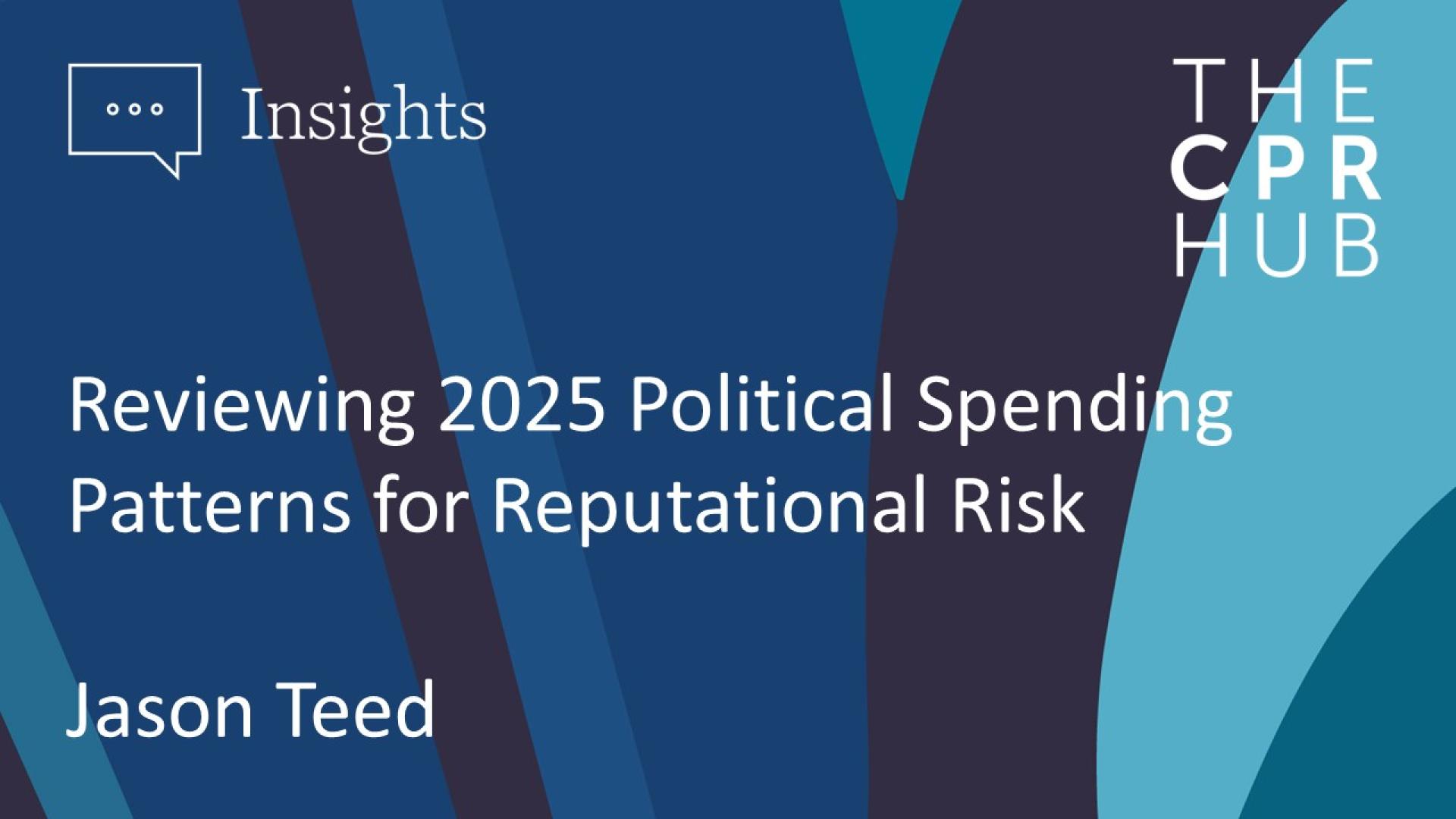Right now, the “rules of the game” are being written for an entirely new era of business. Yet, engaging in today’s political and civic landscape can be complex, uncertain and treacherous. Making sound public affairs decisions is no longer just a matter of reputation—it’s essential to enterprise risk management, value creation, achieving business purpose and fulfilling fiduciary duty.
This is why we are delighted to introduce Third Side Strategies, a non-partisan action-oriented think tank and advisory firm that supports managers, boards, investors, advisors and others working to strengthen public affairs governance in today’s hyper-political environment. Amid pressure to “pick sides,” we believe it is most effective to take the “third side”—focusing on shared long-term value for business and society.
Third Side Strategies represents the next phase of work begun at the Erb Institute at the University of Michigan with its Corporate Political Responsibility Taskforce (CPRT). The CPRT began as a bold experiment in 2021—a place where leaders from business, academia, and civil society came together to explore how companies can align their political influence with their public commitments and long-term value creation.
We are honored to have the support of the Institute as we incubated this work, to include their valuable content as we launch, and to continue to work with the incredible community of Erb students. We are grateful for the continued support of the Erb Institute as we enter this next phase of growth. We are also honored to have connected with the many inspiring leaders advancing this new field and look forward to continuing that work together.
Why Now? Finding a Way off the Tightrope
Despite the current volatile political and civic landscape, companies face urgent strategic decisions around capital allocation, innovation, talent, and growth. Whether managing the changes in energy, AI, trade, cybersecurity, or other areas, a strong public affairs strategy is integral to a company’s competitiveness.
Just consider the complex tangle of pressures companies face:
- Conflicting stakeholder demands and a rising climate of retribution and backlash;
- Unpredictable regulations and overlapping disclosure requirements;
- High-stakes decisions about capital investment, R&D, and hiring in a time of rapid change;
- Systemic instability from geopolitics, environmental risks, fiscal pressures, AI, and polarization
Amid this turbulence, making decisions about public affairs can feel like walking a tightrope: engage, and risk backlash; stay silent, and risk irrelevance or criticism. Companies are too often punished both for acting and for not acting, and risk setting harmful precedents. Too often, failure to connect the dots across functions within a company, and between systemic risk and enterprise risk externally, results in public affairs decisions that put companies and the community at risk. Regardless of whether this failure to connect the dots is unintentional, many stakeholders hold companies accountable for the resulting impacts.
Our Solution: Corporate Political Responsibility (CPR) Governance
The risks of public affairs engagement may be higher right now, but so are the stakes: getting this right enables innovation, aligns with public expectations, and creates long-term value. Public affairs can be a powerful strategic lever, but only if decisions are rigorous, principled, and aligned across the enterprise. This is where Corporate Political Responsibility Governance (CPR Governance) can help.i






Comments
Comment on this Insight